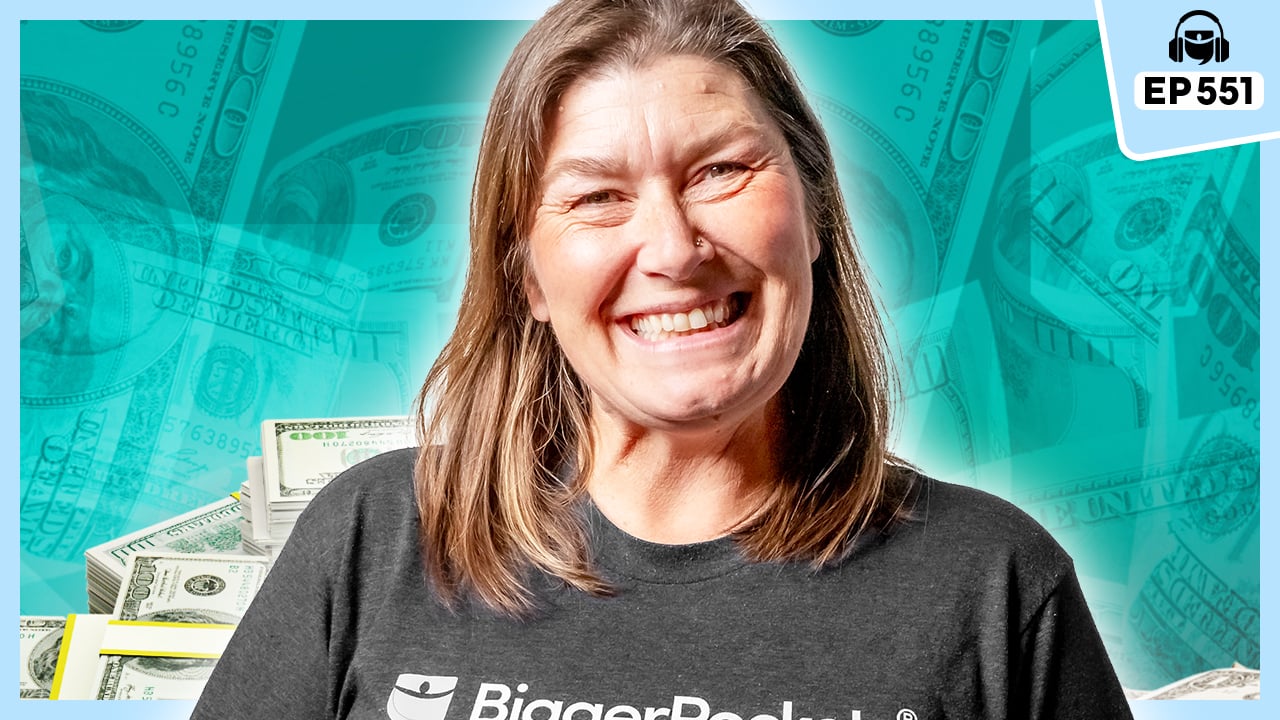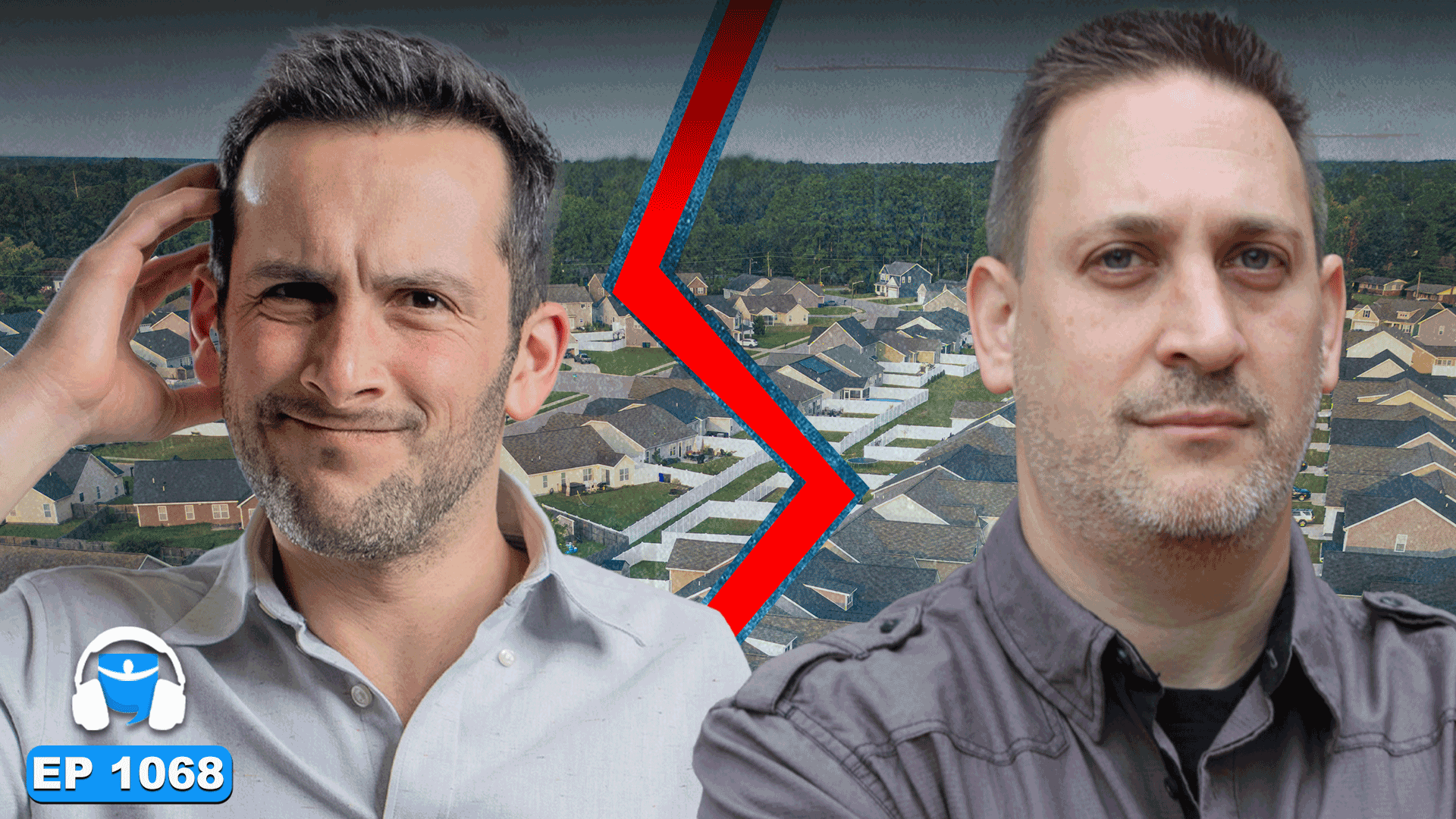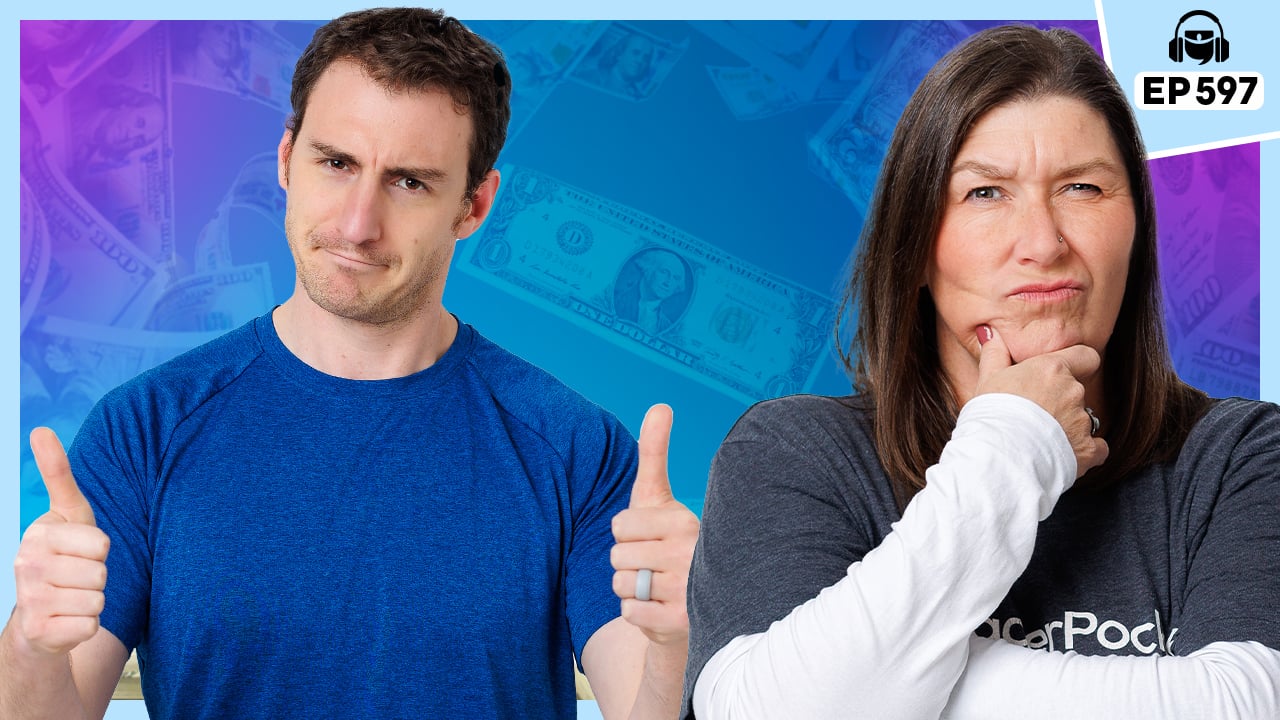Todd retired early at age forty-four, just three years after discovering the FIRE movement. The most interesting part? He quit without reaching his FIRE number. That’s right. After realizing he couldn’t go one more day working his job, he quit, even without the perfect amount of money on the sidelines. Did he survive in the FIRE life, or did he eventually have to return to work to rebuild his portfolio? Stick around and find out!
Although Todd made a good income, he spent most of it on his lifestyle. As his family’s sole provider, every expense took away from his income, leaving him with a respectable but by no means large savings rate. One day, as Todd surfed the internet at work, he stumbled upon a financial independence blog post, and the rest was history! He chased FIRE ruthlessly for three years and eventually was able to retire on his terms.
If you’re looking to retire in your forties, quit your job, find financial freedom, or finally grow your savings, tune in for Todd’s advice. Even if you don’t have a high income, you can follow his cost-cutting, “boring” investing advice to achieve financial independence faster than you thought possible!
Mindy:
Hello, hello, hello and welcome to the BiggerPockets Money podcast. My name is Mindy Jensen and today I have a very special surprise for you, my dear listeners. Today we’re going to share an episode from a YouTube series that I host that features stories of life after financial independence and Life After Fire. Today we’re featuring Todd Frank’s story. Todd retired early at age 44, just three years after discovering the fire movement. The most interesting part, he quit without reaching his fire number. That’s right. After realizing he couldn’t go one more day working at his job, he could even without having the perfect amount of money on the sidelines, and the best part is he did it the boring way. Listen now to find out how, or you can hop over to youtube.com/biggerpockets money and watch the video. This episode is sponsored by BAM Capital, your path to Generational Wealth with premier real estate opportunities. See why over 1000 investors have invested with BAM capital at biggerpockets.com/bam. That’s biggerpockets.com/bm. Todd, welcome. Thank you so much for joining me today. Thanks
Todd:
For having me, Mindy.
Mindy:
Todd, let’s jump right into it. Where did you first hear about the PHI movement?
Todd:
It’s a typical story. I was at work one day taking my morning coffee, browsing the internet. I came across a story about Mr. Money Mustache, went to his blog site. I don’t think I worked the entire rest of that day. I just consumed his blog site and I was hooked right from the beginning and like everybody else, it was the shockingly simple math post that really hit me upside the head. Wow. I don’t have to wait until 59 and a half to retire now. Oh,
Mindy:
You’re the first person I’ve heard, say 59 and a half instead of 65. So it sounds like you were already thinking about when you could exit the workforce,
Todd:
Right? Basically hitting that 59 and a half mark when you could start withdrawing from IRAs but didn’t have any clue that you could do that before 59 and a half. So
Mindy:
Three years is kind of a quick turnaround and it sort of reminds me of my own story with my husband. We did it in about five years, but the reason we were able to do it so quickly is that we had already been saving. It sounds like you were already saving as well.
Todd:
Yeah, I mean, for the most part we were mostly doing the right things along the path. I started investing in 1986 when I was probably 14, 15 years old. My dad had me invest in the Growth Fund of America, a thousand dollars. He was a contractor, so I’d worked for him on weekends and summers. So even at that young age, I was able to earn a little bit of money and once I got my first job out of college, started contributing to 401k, probably started out at a 10% savings rate, eventually maxed out the 401k, maybe a 25% savings rate, and then once I discovered fire, made some spending choice changes and then bumped that up to probably a 50%, but that 50% at the very end probably had very little to do with our growth. It was those years and years, those two decades of growth of just methodically investing and nothing extravagant growth Revenue of America. I kept with that. Eventually started investing in Vanguard and Fidelity and things like that. But no individual stocks, no real estate, nothing fancy, just boring mutual funds.
Mindy:
You say boring, I say safe and you are saying, but I know that you’re married. Right? Can you tell me what the conversation was like when you discovered this Mr. Money mustache weirdo and then you go home? I’m assuming you were just as excited to share it with your wife as my husband was to share it with me.
Todd:
Exactly. Helen and I are kind of the epitome of opposites of attract. I’m a math science numbers brain. She is verbal, a voracious reader in the performing arts. She, throughout her marriage, has never had any interest in the financial side of things. I took care of all the bills when we first got married. She worked, and then after we had kids, she became a stay-at-Home mom, so I earned all of our income. Once kids came along, she was like, oh, that sounds great. Go do it. I feel bad saying I, but it really was kind of a solo journey in that I paid all the bills, made all the financial decisions of where to invest and things like that. I
Mindy:
Think it’s interesting that she’s like, that’s fine. She didn’t think you were crazy that you wanted to retire early. I mean, you found this at 41. You retired at 43 or 44. That’s a little shorter than your 59 and a half timeline.
Todd:
No, she didn’t think it was crazy at all. Like I said, she had a hundred percent trust in me. So
Mindy:
Let’s talk about numbers. Obviously it goes without saying that engineers make a good salary. Did you have a savings goal in mind or were you just trying to max out your 401k every year
Todd:
Before I discovered fire? I don’t know. I mean, I might’ve had a goal of 5 million because when you read the popular media sources out there, the numbers are astronomical. You need to be able to replace 80% of your income the day you retire, which in hindsight, it’s silly. It’s really about what you spend obviously. So I didn’t have a goal, maybe a vague goal of $5 million, but nothing specific, but I just knew I needed to put money away to reach that goal. Obviously, engineers make a good salary and I did make a good salary over my career, which certainly makes it easier. I’m not going to deny that.
Mindy:
It definitely makes it easier, although you can actually reach financial dependence with a lower salary. It just takes longer. Let’s look into the opposite side of fi. What do you think some of the biggest myths are about the FI movement?
Todd:
That’s a great question. I said we were mostly doing the right things, but expenses had crept up over the years. I mean, not extravagant. I think when I discovered phi, I was probably making 150, $160,000 a year spending $110,000 a year, which in the PHI community sounds high. It was a lot of work to get that back down to 80, $60,000 over a period of time. So it did feel like sacrifice. I’m not going to lie. So that’s one of the things I will agree with the myth if you’re already in that, it’s not a sacrifice now, I don’t think it’s a sacrifice, but getting there did feel like a sacrifice. The other myth about the fight is the 4% rule, it’s unsafe or you can’t rely on it, and what I say about that is that’s just a guideline. I honestly, anymore, I don’t even track where we are percentage wise, maybe four to 6%, but I can’t tell you off the top of my head what our withdrawal rate is right this moment. How
Mindy:
Frequently do you check your portfolio
Todd:
Once a month.
Mindy:
I love that
Todd:
Answer. I do withdrawals once a month. When it’s time to pay the bills, how much do I, and it is not a consistent amount every month. How much do I need to withdraw? Where do I need to withdraw it from? I’m not really tracking the withdrawal rate. I kind of track where our net worth is and adjust from there. Do we need to tighten the belt some more? Can we go on this trip? That kind of thing. One example is February of 2020. I was going to start a project of putting solar panels on our roof and we all know what happened at the beginning of 2020, and I just like, okay, maybe I need to put the brakes on this project before we start it, not spend this $15,000 to do that and delayed it. And the market recovered a little bit and what was it? August of 2021, we put the solar panels on. So you just kind of roll with the punches. That’s the way I kind of approach it. It’s not for being a numbers guy. I really don’t focus on the numbers. I don’t have five different spreadsheets anymore like I did when I discovered fire.
Mindy:
Without getting into specific numbers, where’s your portfolio now compared to when you retired in 2016? Is it up, down, or kind of the same?
Todd:
It’s up probably about not quite two x what it was in 2016. Now, a couple caveats in there. I did do some part-time contract consulting work in that time period, so I did earn some money, maybe 150,000, $200,000 over that seven year period. Not a lot. Helen does have a part-time job making maybe four to $5,000 a year. So even making not much income withdrawing over that time period, it’s gone up, which is what you want. If it’s going down, obviously you’re breaking the 4% rule. Okay, so
Mindy:
Well, I think that’s interesting and thank you for appeasing the internet retirement police by admitting that you did generate some income. I knew that I was going to ask you about that. Right. So you proved my point. Seven years ago you retired or semi-retired. I call it retired. You don’t work at that job anymore. No. So you retired seven years ago. You have made maybe two years of spending over the course of seven years, so you’re still getting money somewhere and it’s not income. And yet even after pulling money out your portfolio, it is still more than where you started 1.6 X more than when you started. I think that’s a really powerful underline of the 4% rule, which I am very fond of. However, I will say that yes, so many people are like, oh, there’s so nitpicky about it. Read the original 4% rule article, email [email protected], and I will send you a copy. If you can’t fight it online, sometimes it could be a little difficult to find. I do think that this is all just making my point. Again, Todd’s doing it right. Todd’s pulling from his retirement income. He’s able to live off it comfortably. He is not stressed out about his portfolio because it’s still going up.
Todd:
One other comment about when I retired, there’s this talk about one more year syndrome. Yes. I actually did the one less year syndrome. I mean, when I retired or retired, semi-retired in 2016. I retired on a six to 7% withdrawal rate. I was so burned out, I just did not want to work at that job anymore. My goal was to take a sabbatical and do some part-time consulting. So I didn’t even hit my FI number when I retired and I grew into my FI number by doing some part-time work. Maybe that’s Coast Fi, I don’t know. And I was worried, I’m not going to lie. When I pulled the trigger, I was shaking when I resigned from my job. What are you doing? Nobody does this. I was very conservative on my spending the first few years eventually figured out, this is going to work. We’re going to be fine. The one more year, you can do one less year also, and it does work. I can attest. Oh,
Mindy:
I love that. I know a lot of people in this space and everybody’s got a different story. There are people who have retired well short of their 4% rule number and have gone back to work, but they had a little sabbatical and they’re like, you know what? Early retirement maybe isn’t for me. That’s okay to have this goal, test it out and be like, ah, this isn’t what I want, and go back and do something else. I know people who have retired, well short of their 4% rule a number and have continued to stay retired saying, I’ll figure it out because early retirement is for me, and money is just a math problem and I can do math. I don’t love that. You were a little worried about it. I get the whole, I don’t want to work here anymore thing. All of these different types of financial independence I think are kind of funny to me. phi, lean Fi, fat Phi, barista Fi, as long as you are conscious of your money, I think you are leaps and bounds over the general population of America who was like, no, I’ll figure out how I’m going to pay this bill. I’m just going to keep swiping the cards, swiping the card, and I haven’t talked to anybody ever in this whole space who was like, you know what? I regret pursuing financial independence. This is the worst thing I ever could have done.
Todd:
No, I
Mindy:
Agree. Yeah. Well, you have to because Right. So you mentioned that you were a little nervous about ditching your W2 when you went in to give your notice, you were a little nervous. How do you think PHI changes our perception of work? Once you discovered financial independence, you had to wait three whole years before you could retire. Were you anxious to retire nervous? You said you were nervous to give notice, but were you nervous about actually leaving a job?
Todd:
No, I was not nervous about leaving the job. I was just nervous. And basically comes down to the 4% rule again is like everybody, I listen to blogs, watch, podcasts, all of that stuff, all the examples out there. Here’s the 4% rule, but we don’t actually follow it because we have side hustles, jobs, whatever. So there really is not a lot of real world examples out there of people following the 4% rule. So I was nervous. I kind of felt like there was nobody else I could walk through this journey with and bounce ideas off of because nobody really seems to actually do it. It’s kind of funny. So I was nervous about that. I was not nervous about leaving the job. I had some friends I missed. Of course, I made new friends and doing volunteer work and stuff like that. I did not miss the job. What I say, I’ve loved to work. I hate having a job.
Mindy:
So Todd, what is your biggest PHI takeaway that you would tell our audience? A
Todd:
Couple things. I think it was JD Roth that said this, so I’m going to steal this. The math is easy. The numbers are easy. It’s the emotions about FI that are difficult. Having the confidence to do something that nobody else does. And what I’ll say to that, if you had the discipline and skills to get to the point of fi, post fi, you’ll figure it out. You’ll adapt. You still have the discipline and same skills to make it work if things go south. The other thing is, once I discovered fire at 41, I wanted to retire that day, those three years, and like I said, I did one last year, I just couldn’t wait any longer. I pulled the trigger and that’s the emotional part of it again, is it was difficult for me to be patient to get there, let the numbers work. So my advice is do focus on the numbers, but really think about the emotional side about it. What am I going to do after I fire? That sort of thing. Take care of your mental health and the emotional side of it first. That would be my advice.
Mindy:
Oh, I could not agree more. Todd, that was fantastic advice. Todd, thank you so much for your time today. It is always fun to talk to you. Alright, that was Todd Franks and that was his awesome story. I am so excited to be able to share this with you. We have a lot more of these fire videos on our YouTube channel, which is youtube.com/biggerpockets money. And if you have an interesting fire story, an interesting money story, or you’d like Scott and I to take a peek at your finances, you can apply at biggerpockets.com/guest or biggerpockets.com/finance review. Thanks for listening. BiggerPockets Money was created by Mindy Jensen and Scott Trench. This episode was produced by Eric Knutson, copywriting by Calico Content, post-production by Exodus Media and Chris Micen. Thanks for listening.
Help us reach new listeners on iTunes by leaving us a rating and review! It takes just 30 seconds. Thanks! We really appreciate it!
Interested in learning more about today’s sponsors or becoming a BiggerPockets partner yourself? Check out our sponsor page!
Note By BiggerPockets: These are opinions written by the author and do not necessarily represent the opinions of BiggerPockets.

















%20(2)%20(1).jpg)


Discussion about this post